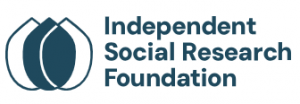ISRF Early-Career Fellowship Competition (ECF5)

DEADLINE 5PM (GMT), 14TH FEBRUARY 2025
The Independent Social Research Foundation wishes to support independent-minded researchers to explore and present original research ideas which take new approaches, and suggest new solutions, to real world social problems.
Please read these details carefully – and consult the FAQs – before commencing an application or contacting the ISRF with a query. Applications must be submitted before 5pm (GMT) on 14th February 2025. Applicants are strongly advised to submit applications well in advance of this deadline. If you ave any technical issues, please notify Stuart Wilson immediately.
Eligibility
Eligible Applicants
Scholars from within Europe[1] are eligible to apply. Candidates should be within 10 years of PhD award at the time of application. Career breaks may be taken into account. Applicants will normally hold a full-time or part-time salaried position – which may be permanent or fixed-term – at an Institution of Higher Education and Research[2]. The awards are intended to provide full relief from all teaching duties and all associated academic administration for a period of (up to) one year. However, independent scholars or individuals not currently in an academic role may also apply.[3]
[1] Eligibility for ISRF funding opportunities is unaffected by Brexit. We continue to encourage applications from scholars working within Europe (geographically defined – so, including those at UK institutions).
[2] There is no limitation on nationality – however, we are unable to consider applications from those whose nominated home institution is not within Europe. We will accept applications for books written in languages other than English.
[3] Candidates who wish to apply as Independent Scholars will need to identify a potential host institution and may need to apply for a stipendiary award rather than a contract buy-out. Please check our FAQs before contacting a member of ISRF administrative staff with queries on this issue.
Eligible Research
Innovative research which breaks with existing explanatory frameworks so as to address afresh empirical problems with no currently adequate theory or investigative methodology. Innovation may also come from controversial theoretical approaches motivated by critical challenge of incumbent theories. Interdisciplinarity in the generation of new investigative initiatives may be achieved by combining, cross-fertilising, and so transforming empirical methods and theoretical insights from the social sciences. Projects ranging across the breadth of the social scientific disciplines and interdisciplinary research fields are welcome, and relevant applications from scholars working within the humanities are also encouraged.
Terms & Conditions
Duration & Timing
The awards are intended as providing full relief from all teaching duties and all associated academic administration for a period of up to one year, and must commence no later than end of January 2026.
Should buy-out funding not be administratively viable or appropriate, non-UK based applicants should contact ISRF to discuss other ways that a Fellowship award could be administered in the context of their local academic/administrative requirements.
Value
The amount of an award depends on the nature of the work proposed and individual circumstances – the ISRF expects applications for grants up to a maximum of €81,500 (or GBP equivalent)[4] to buy-out the cost of all teaching and associated administration in the applicant’s home institution for up to 12 months. Within that sum, reasonable support for research expenses may be considered on a matched-funding basis with the host Institution.
Where home institutions are unable to comply with the matched-funding requirement for research expenses, applications will still be considered – an explanatory note from the relevant Head of School/Head of Department/Research Manager should be submitted as an attachment. Note also that applications without any research expenses component are also accepted.
[4] Applicants based in the UK must apply in GBP (£), up to the limit of £67,500. All other applicants must apply in EUR (€), up to the limit of €81,500. These limits will not be adjusted in the event of GBP/EUR currency fluctuations.
Terms & Conditions
The ISRF reserves the right to extend the deadline for the competition. A short final report will be required, as part of a presentation of the Fellow’s findings, in-person, to the Foundation’s academic representatives.[5] Award holders will also be invited to present their findings in person to the Foundation’s academic representatives. The ISRF’s support is to be acknowledged in all public presentation of research. Full Terms & Conditions governing awards will be provided to successful applicants in their formal offer, based on the draft general terms and conditions available for download. Formal acceptance of the award must be completed by the end of September 2025.
[5] The ISRF does not require a lengthy report on your work, although reflections and comments are welcome as an addendum/appendix; for our records we require a short (no more than 500 words) report on the main features of your work: a short recap/outline of research aims and work plan; changes in research plans with reasons; new or surprising findings or results; what was achieved and how; outputs (presentations, publications etc); lessons learned; collaborations, partnerships, networks that have resulted; further plans/projects that arise from research.
Joint Applications
The competition is open to individuals who wish to undertake a piece of original research. Where more than one researcher wishes to seek funds for the same project, two types of joint application will be considered:
Co-applicants: whereby one application is submitted for a single project, with a total budget up to the limit of €81,500 (or GBP equivalent), wherein two applicants would work on the same project. In the event that the application is successful, both applicants would be awarded ISRF Fellowships. It is up to the applicants to decide how the budget will be split, and to detail this in the application – for example, a 50-50 split could see each applicant bought out for, say, six months. The total project duration should be no more than 12 months, but buy-out periods may overlap wholly or in part. The application should be submitted in the name of one of the PIs, using their institutional details; the fields prompting for submission of prior publications/outputs and qualifications/experience should be completed for both applicants (labelled Applicant 1 & Applicant 2); and the Project Title should begin ‘CoApp’.
Co-investigators: whereby separate applications are submitted, for discrete contributions to an overall project. The budget for each application may be up to the limit of €81,500 (or GBP equivalent). The applications will be considered independently of each other, and neither, one or both may be awarded. Each individual project may last up to 12 months, and award periods may overlap wholly or in part. Each application should have the same Project Title, beginning ‘CoInv’.
Applications to Other Funding Bodies
Applicants may apply without prejudice to other funding bodies. If applications for identical projects were successful it would be expected that only one award (i.e. either the ISRF or another) would be accepted. If applications for either wholly or partly different projects are successful there should be no duplication in the budget headings funded by the ISRF and another body.
All awards are conditional upon acceptance of our Standard Award Terms & Conditions.
The Application
The Research Proposal
All applicants will be expected to provide the following details as part of their proposal:
- An Abstract of the research’s aims, methods, contribution to knowledge, and value in realising the goals of ISRF (300 words)
- The Research Topic: The project’s focus, problem, or question (250 words)
- Background: Established theses or paradigms in the field and their limitations in relation to the Research Topic (250 words)
- Project Thesis: In contrast to established theses, your hypotheses or innovative claims that the research will enable you to support (250 words)
- Methodology: Methods and procedures your research will employ, with description of your main disciplinary technique(s), including interactions across disciplines as required (250 words)
- Work Plan: How your methods and procedures will be structured over the period of the award, including share of work time to be devoted to award research (250 words)
- Outcomes: Describe project contribution, dissemination, any further steps and longer-term goals (250 words)
- Ethics & Access: If applicable, describe any measures required for ethical conduct of the research, including needed regulatory compliance, and to access relevant data/participants (e.g. issues relating to language, positionality, access restrictions) (300 words)
For example Research Proposals from previous Early Career Fellows, see the project pages for Catherine Charrett, Julien-François Gerber, Jill Gibbon, Craig Jones & Oche Onazi.
In support of the Research Proposal, applicants are also prompted to submit:
- A Bibliography limited to two sides of A4 (to be uploaded as an attachment)[6]
- An anonymised Budget (to be entered in the relevant application form field, or uploaded as an attachment)[7]
- An anonymised list of your own publications (or alternative outputs)relevant to the work proposed in your application (to be entered in the relevant application form field)
- An anonymised list of your previous experience or qualifications (e.g. PhD subject area, research specialism(s), language skills, completed research projects, methodological training etc..) relevant to this proposal (to be entered in the relevant application form field)[7]
Finally, you are required to nominate two referees who may be contacted by the ISRF for a Letter of Support.
[6] The submitted bibliography will be appended to your Research Proposal, visible at all stages of the selection process.
[7] Your budget, prior publications/outputs and previous experience/qualifications will only be appended to your Research Proposal, and therefore visible to reviewers, if your application reaches the final, Selection Panel stage.
The Submitted Application
This will be read by academic evaluators who are social scientists but not necessarily in the applicant’s own field; applicants should bear this in mind when writing their application. To make the assessment procedure as fair as possible, we ask applicants to ensure their proposal has been anonymised. It may contain references to the applicant’s previous work but these should not be identifiable. Our Assessment Procedure is set out online.
Institutional Approval
Applicants must confirm that their home institution is aware of their application, and should provide the contact details for the relevant Administrative Officer. Should your application progress, this Officer (Institutional Approver) will be asked to confirm, on behalf of your department and institution that:
- You will be granted the period and proportion of time requested in the Duration and Timing section;
- If replacement costs are requested, you will be in receipt of your normal salary during tenure of the award and the institution will provide cover;
- If research expenses are sought, this request has the support of the head of department/school and institution, who will confirm that these will be matched.
It is therefore advisable that your Head of Department be aware of your application before you submit.
How to Apply
Application Procedure
Applicants are expected to submit their complete application electronically via the online application system, in English.
Completed applications must arrive – via the online application system – no later than 5:00pm (GMT) on 14th February 2025.
A candidate may submit only one application. Applicants can expect to be informed of the result of their applications by email by the end of September 2025.
Application Queries
Please consult the FAQ’s before contacting us directly.
Queries should be directed to Stuart Wilson (Administrator) in the first instance, at stuart.wilson@isrf.org.
